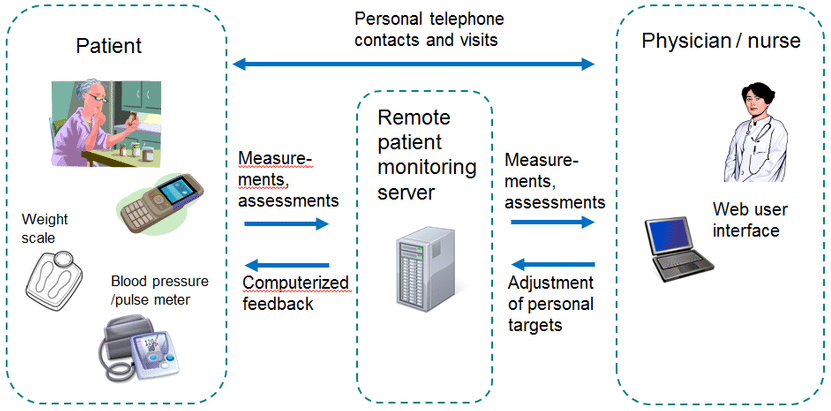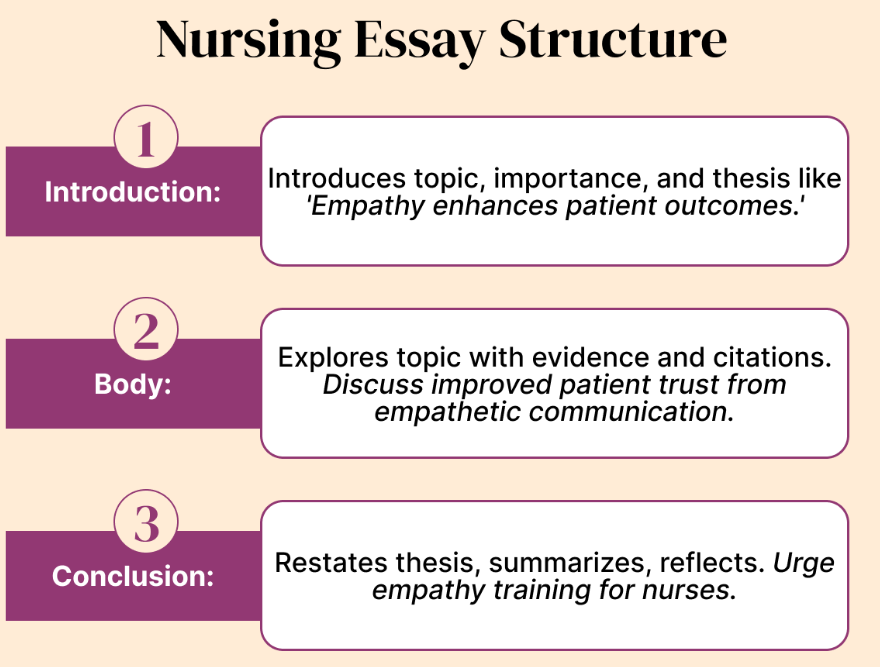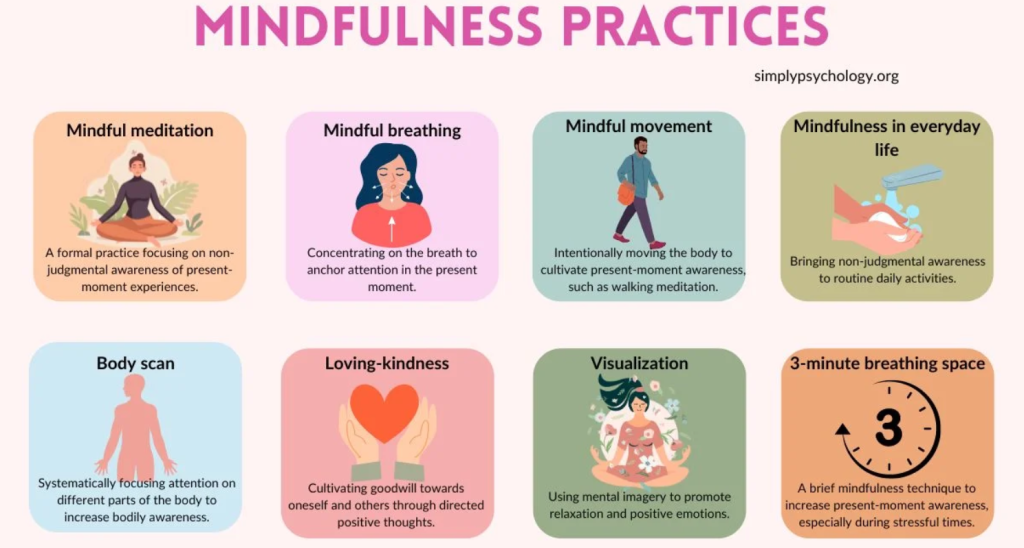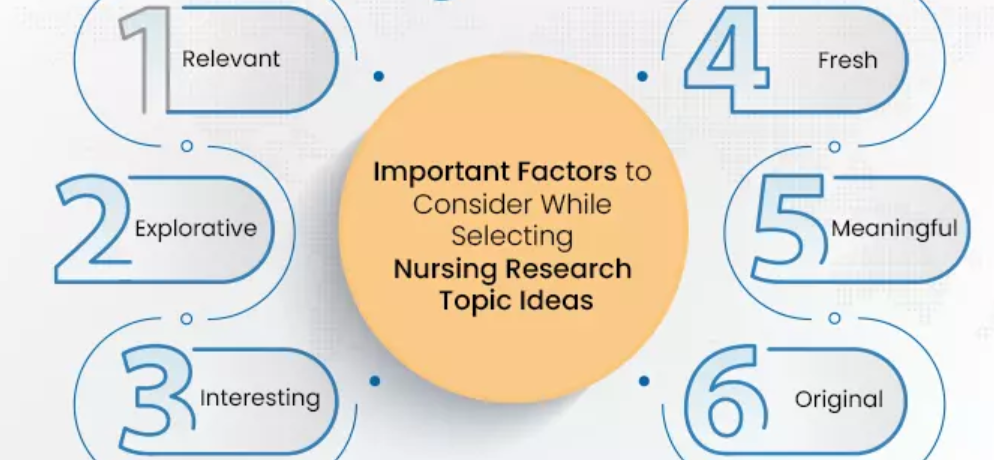
Table of Contents
Choosing a powerful and engaging nursing topic is the cornerstone of any successful academic paper, presentation, or research project. It’s the foundation upon which your entire argument rests, and selecting the right one can significantly impact your engagement with the material and the quality of your final product.
This comprehensive guide will walk you through the process, step by step, to help you identify a nursing topic that is both interesting and academically sound.
Why is Choosing the Right Nursing Topic So Important?
Before diving into the specifics of choosing a nursing topic, let’s understand why this initial step is so crucial. The right nursing topic can:
- Spark your interest: A topic you genuinely care about will make the research and writing process more enjoyable and less daunting.
- Drive your research: When you’re invested in the topic, you’ll be more motivated to explore it thoroughly and uncover new insights.
- Facilitate better writing: Passion translates into more compelling and engaging writing.
- Increase your chances of success: A well-chosen and researched topic will impress your instructor and lead to a higher grade.
Conversely, a poorly chosen nursing topic can lead to:
- Boredom and frustration: Lack of interest will hinder your progress and make the entire process feel like a chore.
- Shallow research: If you’re not invested, you may only scratch the surface of the available information.
- Poor writing quality: Lack of enthusiasm can manifest as dull and uninspired writing.
- Lower grades: A weak topic, combined with poor research and writing, can negatively impact your academic performance.
Step 1: Brainstorming and Exploration
The first step in selecting a nursing topic is to unleash your creativity and explore the vast landscape of nursing. Don’t limit yourself at this stage. The goal is to generate a wide range of potential nursing topics.
- Reflect on your clinical experiences: Think about patients you’ve cared for, challenging situations you’ve encountered, and areas where you feel there’s room for improvement in patient care. What questions arose during your clinical rotations? What surprised you? What made you curious?
- Consider your areas of interest within nursing: Are you drawn to pediatrics, geriatrics, mental health, critical care, oncology, or another specialty? Focusing on an area that aligns with your passions will make the research process more engaging.
- Review current nursing literature: Browse recent issues of nursing journals, attend conferences, and explore online resources like the National Institutes of Health (NIH) and the Agency for Healthcare Research and Quality (AHRQ). Pay attention to emerging trends, research gaps, and areas of debate. Look at what’s trending in the field of nursing paper writing.
- Think about healthcare challenges and innovations: Consider issues like health disparities, the opioid crisis, the impact of technology on healthcare, and the role of nurses in promoting health equity. What are some of the biggest challenges facing the nursing profession today?
- Make a list of potential topics: Write down everything that comes to mind, even if it seems vague or impractical at first. No idea is too small or silly at this stage. This is about generating possibilities, not judging them.

Step 2: Narrowing Down Your Options
Once you have a list of potential topics, it’s time to refine your choices and identify a nursing topic that is both manageable and relevant.
- Evaluate your interests: Go back to your list and identify the topics that genuinely excite you. Which ones do you find yourself wanting to learn more about?
- Consider the scope: Is the topic too broad or too narrow? A broad topic will be overwhelming to research and write about, while a narrow topic may lack sufficient supporting evidence. For example, “Mental health” is too broad, while “The impact of mindfulness meditation on anxiety levels in elderly patients with Alzheimer’s disease in a specific nursing home” might be too narrow. Aim for a topic that is focused but still allows for in-depth exploration.
- Assess the availability of resources: Can you find enough credible sources of information to support your research? Check online databases like PubMed, CINAHL, and Cochrane Library to see what’s available. If there’s a paucity of evidence, you may need to choose a different nursing topic.
- Consider your instructor’s guidelines: Does your instructor have specific requirements for the topic, such as a particular clinical area or theoretical framework? Make sure your chosen nursing topic aligns with these guidelines.
- Look at examples of good topics for nursing: Seeing what has worked for others can provide valuable insight. Many resources provide lists of nursing paper topics to inspire you.
- Refine your list: Eliminate topics that are too broad, too narrow, lack sufficient resources, or don’t align with your interests or instructor’s guidelines.
Step 3: Formulating a Focused Question or Statement
Once you’ve narrowed down your options, it’s time to transform your chosen topic into a focused research question or statement. This will provide a clear direction for your research and writing.
- Turn your topic into a question: Instead of simply stating “The impact of nurse burnout,” ask “What is the relationship between nurse burnout and patient safety outcomes in acute care settings?”
- Ensure your question is specific and measurable: Avoid vague or ambiguous terms. Your question should clearly define the population, intervention (if applicable), comparison (if applicable), and outcome.
- Consider using the PICO framework: PICO stands for Population, Intervention, Comparison, and Outcome. Using this framework can help you formulate a well-defined research question.
- Population: Who are you studying? (e.g., Registered Nurses)
- Intervention: What intervention are you investigating? (e.g., Implementation of a resilience training program)
- Comparison: What are you comparing the intervention to? (e.g., No intervention)
- Outcome: What outcome are you measuring? (e.g., Reduced burnout rates, improved job satisfaction)
- For example: “In registered nurses working in acute care settings (Population), does the implementation of a resilience training program (Intervention) compared to no intervention (Comparison) result in reduced burnout rates and improved job satisfaction (Outcome)?”
- If your assignment is a paper, create a statement rather than a question: “The purpose of this paper is to examine the relationship between nurse burnout and patient safety outcomes in acute care settings.”
Step 4: Conducting Preliminary Research
Before committing to a topic, it’s essential to conduct preliminary research to ensure it’s feasible and worthwhile.
- Search for relevant articles and studies: Use online databases like PubMed, CINAHL, and Cochrane Library to identify existing research on your topic.
- Read abstracts and introductions: Focus on understanding the main findings and gaps in the existing literature.
- Evaluate the quality of the evidence: Look for studies that use rigorous methodologies and have been published in reputable journals.
- Assess the feasibility of your research question: Can you realistically gather the data you need to answer your question? Do you have access to the necessary resources and participants?
- Refine your question if necessary: Based on your preliminary research, you may need to adjust your question to make it more focused or feasible.
Step 5: Seeking Feedback and Finalizing Your Choice
Before moving forward, it’s wise to seek feedback from your instructor or a trusted mentor.
- Discuss your topic with your instructor: Get their input on the relevance, scope, and feasibility of your chosen topic.
- Ask for suggestions on resources and approaches: Your instructor may be able to point you towards valuable resources or suggest alternative perspectives.
- Be open to feedback and willing to revise your topic: Your instructor’s feedback can help you refine your topic and improve the quality of your research.
- Finalize your topic: Once you’ve received feedback and made any necessary revisions, you can confidently commit to your chosen nursing topic and begin your research.
Powerful Nursing Topics for 2025 and Beyond
The field of nursing is constantly evolving, demanding that practitioners stay abreast of the latest research, technological advancements, and ethical considerations. Exploring an impactful nursing topic not only enhances individual knowledge but also contributes to improving patient outcomes and shaping the future of healthcare. The following are ten powerful nursing topics that are currently at the forefront of the profession, each offering unique challenges and opportunities for growth.
1. Telehealth and Remote Patient Monitoring: Bridging the Distance Gap
Telehealth, the use of technology to deliver healthcare remotely is a trending nursing topic that has exploded in popularity, particularly in recent years. Its benefits are numerous, including increased accessibility for patients in rural or underserved areas, reduced healthcare costs, and improved patient engagement. However, the implementation of telehealth also presents several key challenges:
- Ensuring Patient Privacy and Security: Maintaining the confidentiality of patient data transmitted electronically is paramount.
- Addressing the Digital Divide: Not all patients have access to the necessary technology or internet connectivity to participate in telehealth services.
- Developing Effective Communication Strategies: Adapting communication techniques for virtual interactions is crucial for building trust and rapport with patients.
- Standardizing Reimbursement Policies: Consistent and fair reimbursement models are needed to incentivize the adoption and sustainability of telehealth services.

2. Mental Health Integration in Primary Care: A Holistic Approach
Recognizing the critical link between physical and mental well-being, integrating mental health services into primary care settings is increasingly recognized as a vital nursing topic. This collaborative approach allows for early identification and treatment of mental health conditions, reducing stigma and improving overall patient health. Key areas of focus include:
- Screening and Assessment: Implementing routine mental health screenings in primary care settings.
- Collaborative Care Models: Training primary care providers to collaborate with mental health specialists.
- Addressing Stigma and Barriers to Care: Creating a welcoming and supportive environment for patients seeking mental health services.
- Promoting Mental Health Literacy: Educating patients and families about mental health conditions and available resources.
3. Precision Medicine and Personalized Care: Tailoring Treatment to the Individual
Precision medicine, which utilizes an individual’s genetic information, lifestyle, and environment to tailor treatment plans, is another incredible nursing topic. Nurses play a crucial role in implementing precision medicine initiatives, from educating patients about genomic testing to coordinating care based on individual genetic profiles. Considerations for nurses in this area include:
- Understanding Genomic Testing: Keeping up-to-date with the latest advancements in genomic testing and their implications for patient care.
- Patient Education and Counseling: Providing patients with clear and concise information about genomic testing and its potential benefits and risks.
- Ethical Considerations: Addressing ethical issues related to genetic privacy, informed consent, and potential discrimination.
- Data Management and Interpretation: Managing and interpreting complex genomic data to inform treatment decisions.
4. Antimicrobial Stewardship: Combating Resistance
Antimicrobial resistance (AMR) is a growing global health threat, making antimicrobial stewardship programs crucial for preventing the overuse and misuse of antibiotics. Nurses are on the front lines of infection control and play a vital role in promoting responsible antibiotic use. Here are the key ideas to explore under this nursing topic;
- Education and Training: Educating patients and families about the appropriate use of antibiotics and the importance of infection prevention.
- Monitoring Antibiotic Prescriptions: Monitoring antibiotic prescribing patterns and identifying opportunities for improvement.
- Implementing Infection Control Practices: Adhering to strict infection control protocols to prevent the spread of infections.
- Advocating for Antimicrobial Stewardship Policies: Supporting and advocating for policies that promote responsible antibiotic use.
5. Palliative Care and End-of-Life Care: Providing Comfort and Dignity
Palliative care is another trending nursing topic that focuses on providing relief from the symptoms and stress of a serious illness, regardless of the stage of the disease. End-of-life care focuses on providing comfort and support to patients in their final days or weeks. Nurses play a critical role in providing compassionate and holistic care to patients and families facing serious illness and death:
- Pain and Symptom Management: Providing effective pain and symptom management to improve quality of life.
- Emotional and Spiritual Support: Providing emotional and spiritual support to patients and families.
- Advance Care Planning: Facilitating conversations about advance care planning and ensuring that patients’ wishes are honored.
- Communication and Collaboration: Communicating effectively with patients, families, and other members of the healthcare team.
6. Chronic Disease Management: Empowering Patients to Live Well
Chronic diseases, such as diabetes, heart disease, and asthma, are a major cause of morbidity and mortality worldwide. Nurses play a critical role in helping patients manage their chronic conditions and improve their quality of life. Some of the common areas to explore under this nursing topic include;
- Patient Education and Self-Management: Educating patients about their chronic conditions and empowering them to manage their own care.
- Care Coordination: Coordinating care between different healthcare providers and ensuring that patients have access to the resources they need.
- Health Promotion and Prevention: Promoting healthy lifestyle choices and preventing the progression of chronic diseases.
- Remote Monitoring and Telehealth: Utilizing remote monitoring and telehealth technologies to monitor patients’ conditions and provide support remotely.
7. Nurse Burnout and Well-being: Protecting Our Caregivers
Nurse burnout is a significant problem that can negatively impact patient care and nurse retention. Factors such as high workloads, long hours, and emotional demands contribute to burnout. This vital nursing topic deserves attention.
- Promoting a Supportive Work Environment: Creating a workplace culture that values nurse well-being and provides resources for stress management.
- Implementing Strategies for Stress Reduction: Providing nurses with access to mindfulness training, counseling services, and other stress-reduction techniques.
- Advocating for Adequate Staffing Levels: Ensuring that hospitals and healthcare facilities have adequate staffing levels to reduce workload and improve patient safety.
- Encouraging Self-Care: Promoting self-care practices among nurses, such as exercise, healthy eating, and spending time with loved ones.
8. Health Equity and Social Determinants of Health: Addressing Disparities
Health equity means that everyone has a fair and just opportunity to be as healthy as possible. Social determinants of health, such as poverty, education, and access to housing, play a significant role in health outcomes. Nurses are uniquely positioned to advocate for health equity and address the social determinants of health. The ideas you can explore under this nursing topic include;
- Advocating for Policies that Address Social Determinants of Health: Supporting policies that address poverty, improve access to education, and provide affordable housing.
- Providing Culturally Competent Care: Providing care that is sensitive to the cultural beliefs and values of patients.
- Addressing Implicit Bias: Recognizing and addressing implicit biases that can impact patient care.
- Partnering with Community Organizations: Partnering with community organizations to address the social determinants of health in local communities.
9. Ethical Considerations in Nursing Practice: Navigating Complex Dilemmas
Nurses frequently encounter ethical dilemmas in their practice, such as issues related to patient autonomy, confidentiality, and end-of-life care. This constantly evolving nursing topic requires critical thought.
- Providing Education on Ethical Principles: Providing nurses with education on ethical principles and decision-making frameworks.
- Establishing Ethics Committees: Establishing ethics committees to provide guidance and support to nurses facing ethical dilemmas.
- Promoting Open Communication: Encouraging open communication among nurses, patients, and families about ethical issues.
- Supporting Nurses in Making Ethical Decisions: Providing nurses with the resources and support they need to make ethical decisions.
10. The Role of Technology in Nursing Education and Practice: Embracing Innovation
Technology is rapidly transforming healthcare, and nursing education and practice must adapt to keep pace. This important nursing topic has led to:
- Utilizing Simulation in Nursing Education: Using simulation to provide students with hands-on experience in a safe and controlled environment.
- Integrating Technology into Clinical Practice: Utilizing electronic health records, telehealth, and other technologies to improve patient care.
- Promoting Digital Literacy: Ensuring that nurses have the skills and knowledge to use technology effectively.
- Exploring the Use of Artificial Intelligence in Nursing: Exploring the potential of artificial intelligence to improve patient outcomes and streamline nursing workflows.

Exploring these ten powerful nursing topics is essential for all nurses who strive to provide high-quality, patient-centered care and contribute to the advancement of the nursing profession. By staying informed and engaged, nurses can play a leading role in shaping the future of healthcare.
Where to Look for Further Support
Sometimes, despite your best efforts, the process of choosing a nursing topic or completing your nursing paper writing can be overwhelming. Don’t hesitate to seek nursing paper help from Nursing Papers. We can help you with topic selection, nursing paper writing, proofreading, editing, formatting and plagiarism removal. Besides nursing papers, we also assist students in writing essays, term papers, case studies, thesis and dissertations.
Choosing the right nursing topic is a crucial step in your academic journey. By following these steps, you can identify a topic that is both engaging and academically sound, setting you up for success in your research and writing endeavors. Remember to focus on your interests, consider the scope and availability of resources, and seek feedback from your instructor or mentor. Good luck!

















